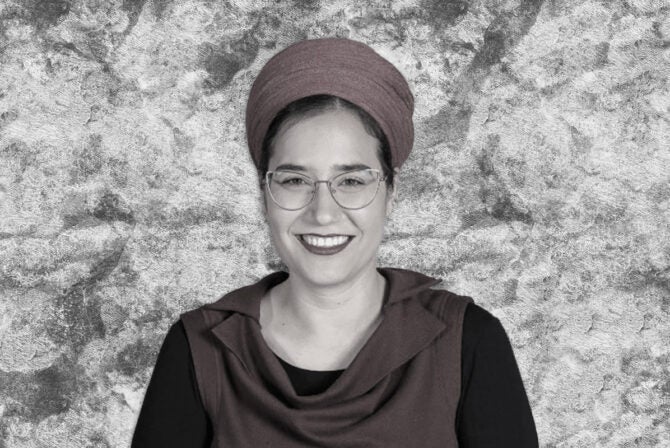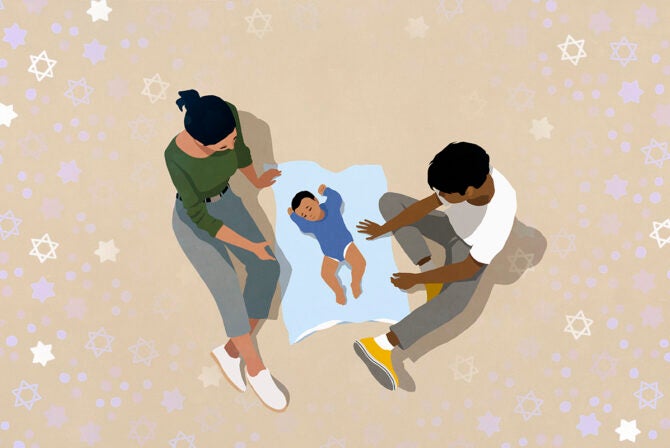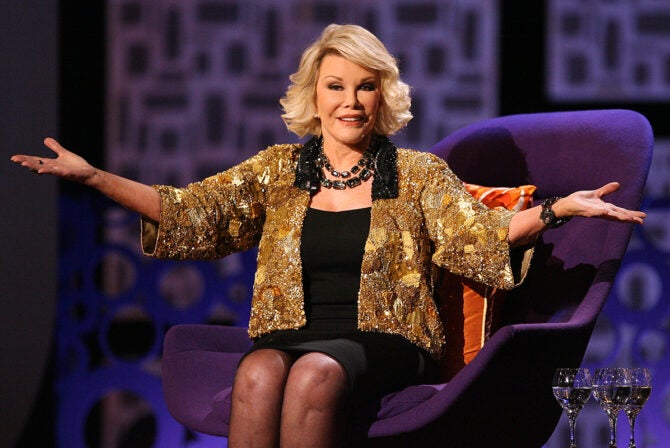My husband is not the first Jewish man I’ve ever loved. Years before I even met him, when I was 8 or 9, I was crushing on another Jewish guy. Huddled under a blanket at night with a flashlight and our family’s picture bible, I met Joshua, whose illustrated muscly arms, kind face, and friendly beard had me turning page after page. I watched him fight the battle of Jericho, and lead his people into Canaan. He was so young to have the great task of replacing Moses as the Israelites’ leader. Seriously, how do you follow an act like Moses? I was smitten.
But the truth is, it wasn’t only Joshua who had my heart. I loved all the characters in the stories I learned: Jacob, who must really have loved Rachel to work an additional seven years for her hand after Laban deceived him into marrying Leah; David, the poetic and musical son of Jesse, anointed to become one of Israel’s greatest kings; Abraham, to whom God promised descendants like the stars in the sky.
While my husband, like many of my friends, dreaded going to religious school, my siblings and I listened eagerly as our mother told us of vain and tortured Absalom and mimed him weighing his beautiful hair. Our eyes widened as we learned of Daniel, protected by God in the hungry lions’ den. We played along to a recording of “Elijah,” a children’s musical we found in a box of music my dad, our church’s choir director, received several times a year. We sang the names of each of Jacob’s sons, the 12 tribes of Israel.
I don’t know if this is typical of every kid growing up in a Christian home, but in my family, the stories of the Hebrew Bible, alongside the stories of the New Testament, were the well-loved tales of my childhood. And now, as an adult, those stories are still there, deeply rooted, woven intricately into my fibers, the way the smell of grandma’s cookies or the sound of your parents’ old records playing are part of you forever.
I bring my deep-rooted love for these stories to my interfaith marriage. But the truth is, it’s not a love that my husband shares. Like most other kids my age, his fondest childhood memories involve “Punky Brewster,” “Teenage Mutant Ninja Turtles,” and re-enacting the entirety of
Wayne’s World on home video. What I’m about to say may be controversial, but it is the truth in our household. Marrying me–non-Jewish, Chinese American, Christian-raised me–might be what ensures that these stories get passed on to the next generation with enthusiasm, passion, and love.
I think that from the perspective of many faiths, interfaith marriage is often feared to be the “dead end” of traditions and beliefs, or at best, a watered down, compromised version of what came before. People from my faith have certainly expressed that they wished, or even prayed, that I had found someone from my own faith to settle down with. And I know there are others from my husband’s faith who look at us with sadness, because to them, my family represents the end of a long line of Jews.
But where some perceive weakness, I see strength. I believe that my husband and I have an opportunity to be a fresh pair of eyes for one another, pointing out what’s interesting, challenging, or wonderful in the other’s traditions in a way that someone with the same background might not be able to do. It may be through my eyes that my husband finds a new love and appreciation for the enduring stories of his people.
I can show him that the power of these stories does not have to end in childhood, but can instead grow with us into adulthood with ever-changing meaning. Today, I am drawn to the humanity of Jacob, when he cheated his brother out of his birthright; to the weakness of David, when his wandering eyes led him to murder Bathsheba’s husband; to the doubt of Abraham, when he slept with Hagar because his wife was growing old and infertile. I am drawn to the imperfect heroes within these beautiful stories of a thriving people.
I admire that Jews keep the “bad and the ugly” along with the “good” in their stories. It teaches me to curiously examine rather than hide or run from the dark, faltering parts of myself and my own history. It’s a valuable lesson to us as partners; accepting my own shortcomings helps me to better love and honor my husband in spite of his. And as parents, we aim to model this message for our daughter–to show her there is no shame in our mistakes, imperfections, and struggles, only opportunities to learn and continue moving forward, sometimes to greatness, like the heroes in these stories.
I cannot speak to what the fate of these stories would have been if my husband had married another Jew, or someone from a different faith entirely, but I can say with confidence that not only do these stories not end with me, they are completely safe with me.
As a child I couldn’t have dreamed that someday I’d have a chance to share these stories with my own daughter, to tell her of Abraham and Isaac, of Joseph, of Moses, of Elijah, and to be able to tell her, “These are the stories of YOUR people. You are from Abraham. They are a part of you!” Though I am not Jewish, I am brimming with pride. What an honor it will be to witness the delight in her eyes, the questioning in her mind, the love in her heart for the same stories that brought such richness and complexity to my own childhood.
I am now part of the Jewish tradition of storytelling, of sharing history at the family table. I was not born into it; I married into it. I know that some will not recognize my daughter as Jewish because I am not. I know that some will think that these are not my stories to tell. But as a partner and a mother in my half-Jewish family, this is what I see from where I stand: that I, alongside my husband, have the great task of taking over for Moses, for Joshua, for generations of Jews. How do I follow an act like that? With open arms and great reverence.







